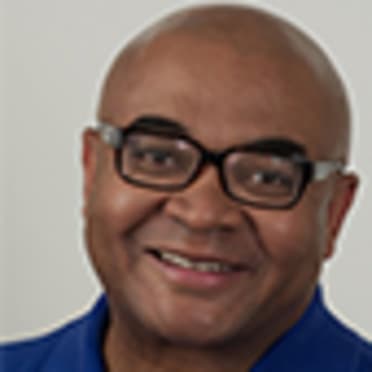DENVER -- Rockies third baseman Nolan Arenado thought he eliminated many questions by signing his eight-year, $260 million contract back in March. But constant queries from media local and national, traditional and next-gen, seemed to add an unexpected layer of stress.
“It was a little much but it came with the territory -- I understood that,” Arenado said. “But it was a little weird getting the same questions asked a lot. I just felt like I was kind of like repeating myself over and over, so that part I was just kind of like, this is kind of weird.”
In the universe of a player needing to stay healthy, perform and win (something all players face) and be the face of a franchise and a sport (Arenado is in a rare group here), media and fan attention are a small part of life. But the crush led to more-than-occasional grimaces and eye-rolls, although refusals were rare, and he relaxed with those who knew him best.
But would he go from effervescent to moody, to the point it could affect performance and team chemistry?
“What I have told him is his place on this team is now different than it was a couple of years ago,” Rockies manager Bud Black said. “There was Todd Helton, Troy Tulowitzki, Carlos Gonzalez. What I’ve told him is it has changed to Arenado, [Charlie] Blackmon, [Trevor] Story, and Nolan is right out front.
“I think he's becoming more comfortable with it -- which I hope he does, because it's not going away.”
To the important question of performance, Arenado and the Rockies have reason to be all smiles.
Since April 10, the date of his first home run:
• Arenado’s 19 extra-base hits trail only the Cubs’ Javier Baez (22), the Pirates’ Josh Bell (20) and Rockies teammate Charlie Blackmon (20) among National Leaguers.
• Only the Brewers’ Christian Yelich’s 11 homers have outpaced Arenado’s 10.
• Arenado’s 1.074 OPS is fourth.
Most importantly, from April 10 through Sunday, Arenado’s surge has helped the Rockies to the NL’s third-best record over that period (16-12), trailing the Cubs (21-7) and the NL West-rival Dodgers (19-12).
And, realizing the reason for the attention, he took the requests as a compliment.
”Listen, it was a story,” he said. “There’s worse things in the world than talking to me.”
Arenado’s handling of real and imagined requirements that come with his status is not lost on those in the clubhouse and in the organization -- mainly because he didn’t build a shell around himself with those who matter most.
In keeping with a team focus on connecting at-bats, Arenado is in frequent discussion with guys throughout the order -- Daniel Murphy and Story, who bat before or after him; Ian Desmond, who has some similar preparation methods; and David Dahl, who speaks the same language when it comes to fundamentals. He also gave himself over to new hitting coach Dave Magadan, assistant hitting coach Jeff Salazar and bullpen catcher Aaron Munoz (who helps him with his batting-cage drills).
All this has made him a player not only to be admired, but one to be followed.
“He's relentless,” Murphy said. “Like he doesn't give away pitches. That is something I found usually takes veteran guys awhile to understand in this game because it's easy to give pitches away, but he doesn't. It's really impressive to watch.
“That's a choice that you have to make and he makes it every day.”
The interactive attitude opened him to an addition to his routine -- hitting against a pitching machine set at solid, Major League fastball speeds, something Desmond did over the winter.
Statcast figures suggest this practice has helped him crush the fastball. Through April 9, he had a .357 slugging percentage on two- and four-seam fastballs; starting with April 10, he is slugging those pitches at an otherworldly .731 clip.
How does this relate to the external responsibilities?
By keeping his focus on the team and his prep work, there is simply less time to be crushed. Rather than being an always-available team spokesman, which works for some as long as the message is proper, Arenado operates much like Blackmon, himself in a big contract (six years, $106 million, signed last year).
“I don't sit over here at my locker a whole lot messing around,” Blackmon said. “I feel like there's other stuff that I need to be doing and I'd rather do that before I sign autographs or talk to the media -- things that are important, but to me they aren't as important as being good at baseball. I do a lot of preparation to be good at baseball.”
The Rockies have helped by not shoving even more off-field responsibility into Arenado’s job description.
“When it comes to players, to believe that it's just a team that has one leader is an antiquated notion,” Rockies general manager Jeff Bridich said. “Nolan, where he's at in his career and who he is, is definitely part of that leadership group, as he should be. I don't think it's any more complicated than that.”
Once he recovered from the initial onslaught, Arenado has been his accommodating self -- within reason. It is possible to shun attention, yet perform well and be a good teammate. But Arenado wasn’t that way before, and he can’t let real and perceived demands that come with a mega-contract turn him that way.
“I'm like, ‘Hey, I can't be like that,’" Arenado said. “There are times when I just don’t have time, but I get that everybody has a job to do and I respect everyone’s job.”

